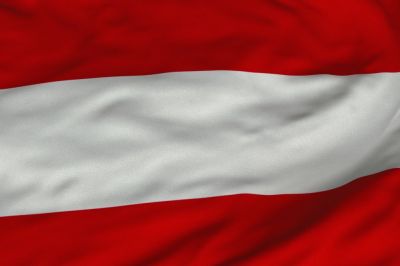
Universities, Universities of Applied Sciences and University Colleges of Teacher Education may set up and/or continue bachelor's programmes. The workload associated with Bachelor programmes amount to 180 ECTS credits or 6 to 8 semesters, in exceptional cases 240 ECTS credits (if this is vital for guaranteeing employability and if the duration of the studies is comparable to that in other countries).
The following groups of studies are offered:
Every degree programme must be clearly attributable to one of the aforementioned groups, since this determines the academic degree. Whenever necessary, a student may follow an individual study programme – with the approval of the institution, though – which will be a combination of examination subjects from different study programmes.
The fields in which Universities of Applied Sciences may provide bachelor programmes are not defined by statute. Currently the following fields are offered:
Currently Private Universities provide 62 bachelor programmes. The fields in which Private Universities may run bachelor programmes are not defined by statute.
At present primarily the following fields are offered:
A curriculum must be drawn up and announced for each degree programme which is offered. It is the central document of every degree programme. It governs, in particular, the qualification profile and the structure of the programme, as well as the examination subjects and the courses required prior to taking an examination, other achievements (always defining the scope of the achievement in ECTS credits) and the way in which examinations must be taken.
At Public Universities it is the duty of the Senate to enact and change the curricula for degree programmes and certificate University programmes for further education.
The scope of a degree programme must be indicated exclusively in terms of the credits established under the European Course Credit Transfer System (ECTS). This system is an important mobility-promoting instrument.
The curricula for Universities of Applied Sciences are prepared independently by the provider of the University of Applied Sciences – usually by a body of experts – and accredited by the Universities of Applied Sciences Council. The share of the workload of the students related to the individual studies is determined with ECTS credits according to the University of Applied Sciences Studies Act (Fachhochschul-Studiengesetz). University of Applied Sciences bachelor progammes are assigned 180 ECTS. Applications for accreditation of a University of Applied Sciences bachelor programme have to contain details on the following items:
The curricula of programmes at Private Universities are prepared independently by the respective institution. During the process of accreditation by the Accreditation Council, the curricula are checked by international specialists as to quality, international comparability and conformity with the Bologna objectives.
Most bachelor programmes provided by Private Universities are assigned 180 ECTS credits; however, exceptions are possible (e.g. in the field of music and arts).
A few Private Universities provide study courses in English or French.
Upon successful completion of all achievements required by a particular curriculum, the relevant academic degree is awarded by way of a written official notification promptly, at the latest, though, within one month after satisfaction of the requirements. The official notification must indicate, in particular, the completed study programme and the academic degree and the legal basis (e.g. the Universities Act 2002 - as amended and the relevant curriculum).
The following Bachelor's degrees are awarded:
If a degree programme is completed on the basis of a joint degree programme, it is admissible under certain conditions that the academic degree is awarded in one joint document, together with the partner institution.
For the purpose of supporting international mobility of graduates, students are entitled to be issued a Diploma Supplement pursuant to Article IX.3 of the Lisbon Recognition Convention, in connection with the official notification of being awarded the academic degree.
If an Austrian academic degree is urgently needed for the exercise of a certain professional activity – i.e. if the activity falls under an area with statutory regulations and the professional recognition pursuant to EU law does not apply – holders may apply to an institution with subject-matter competence for nostrification of their foreign academic degree. The nostrification procedure is an administrative procedure. In a few exceptional cases (e.g. regarding many students from Italy or Croatia) bilateral agreements, instead of nostrification, allow equivalency to be established by the Federal Ministry for Science and Research.
After completion of the studies and examinations required for a University of Applied Sciences programme, students are awarded a degree. The academic degree for University of Applied Sciences bachelor programmes is “Bachelor” with a suffix designating the discipline. Admissible degrees, suffixes and abbrevations of degrees are established by the Universities of Applied Sciences Council, subject to approval by the Federal Minister. For individual Universities of Applied Sciences programmes the respective degrees together with the additional designations are to be established by the Universities of Applied Sciences Council in the accredition decree.
By virtue of their accreditation by the Austrian Accreditation Council, Private Universities are entitled to confer recognised Austrian academic degrees on their students.